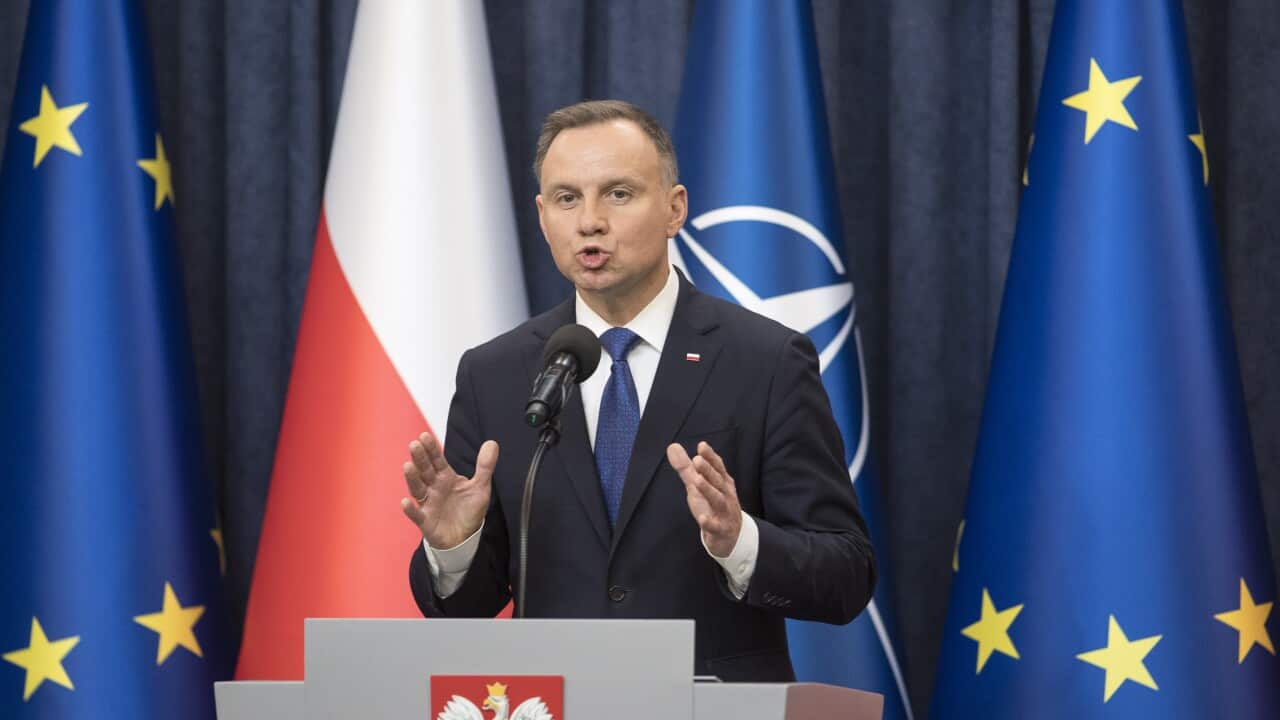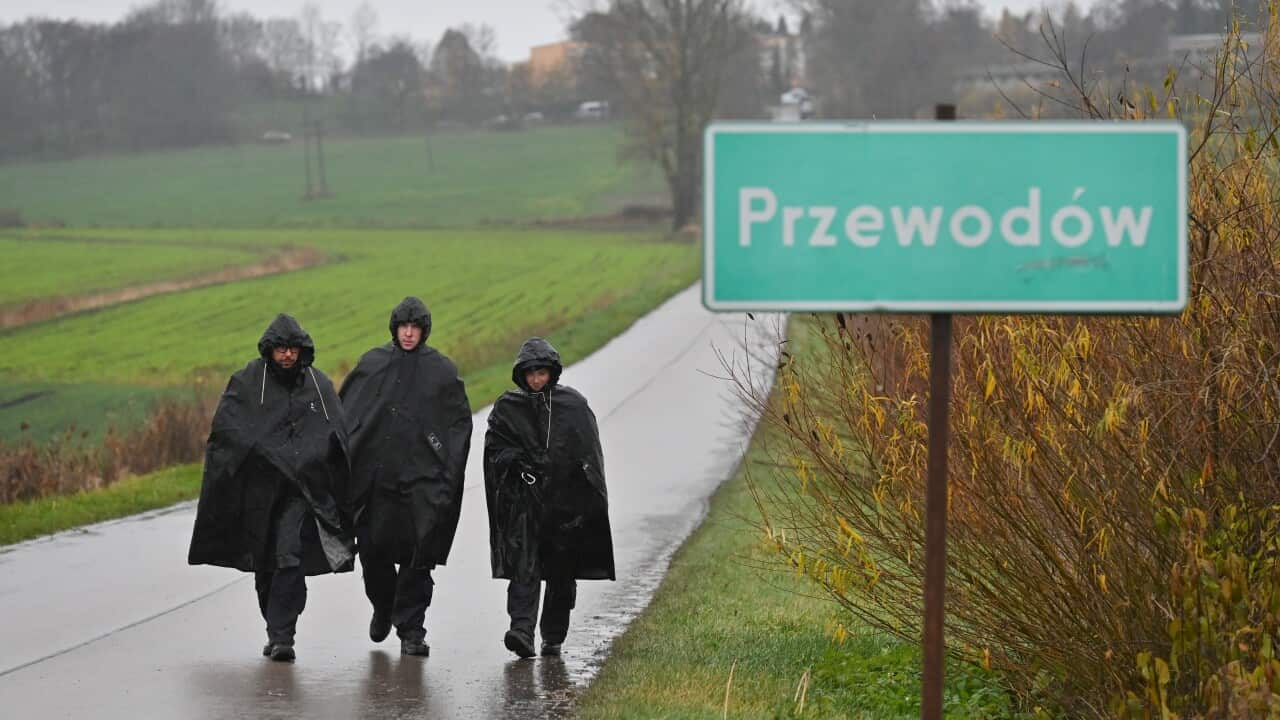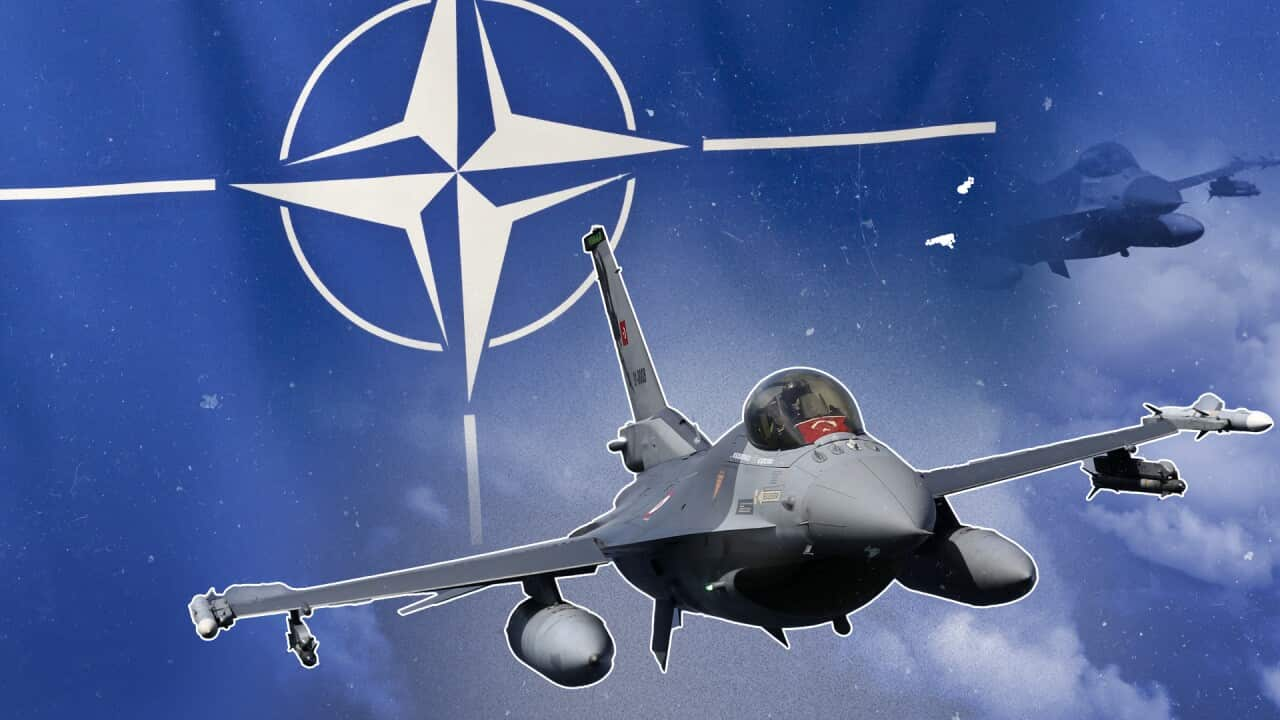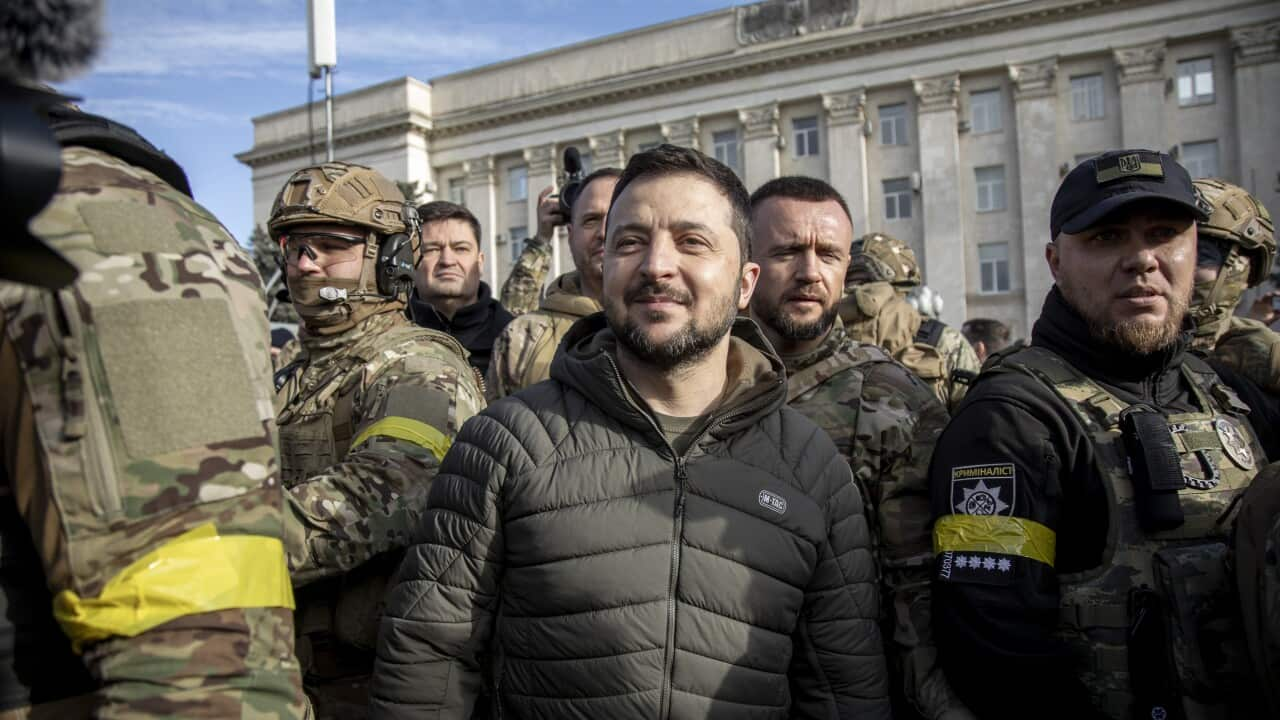A missile blast that on Tuesday has raised fears of a broader war across Europe.
As a member of the North Atlantic Treaty Organization (NATO), Poland has the option of invoking Article 4 of NATO's treaty in response to the explosion.
With an investigation into the still underway, here's what we know so far, and what could happen next.
Who's to blame for the missile deaths in Poland?
Polish authorities initially said , which landed in the village of Przewodow near Ukraine on Tuesday, was "most likely" Russian-made - a claim Russia's defence ministry denied.
The missile blast came amid a campaign by Russia against Ukraine, where more than 100 missiles rained down on the nation.
On Wednesday, a group of NATO members held an emergency meeting on the sidelines of the G20 summit in Bali, with United States President Joe Biden announcing that the group was unanimous in backing an investigation into the incident.
Later, NATO and Poland said that early information suggested the missiles appeared not to have been fired by Russia.
Instead, the missile was probably a stray fired by Ukraine's air defences and not a Russian strike, Poland and NATO said, easing fears that the war could spill across the border.
NATO's chief said that Russia, not Ukraine, was still to blame for starting the war in the first place with its February invasion and launching scores of missiles on Tuesday that triggered Ukrainian defences.
"This is not Ukraine's fault. Russia bears ultimate responsibility as it continues its illegal war against Ukraine," NATO Secretary-General Jens Stoltenberg told reporters in Brussels.
"From the information that we and our allies have, it was an S-300 rocket made in the Soviet Union, an old rocket and there is no evidence that it was launched by the Russian side," Polish President Andrzej Duda said.
"It is highly probable that it was fired by Ukrainian anti-aircraft defence."
Earlier, Mr Biden had said the trajectories suggested the missile was unlikely to have been unleashed from Russia.
Ukrainian President Volodymyr Zelenskyy objected on Wednesday, saying "I have no doubt that it was not our missile". He said he based his conclusion on reports from Ukraine's military which he "cannot but trust".
He urged that Ukraine be included in the investigation of the explosion site in Poland in order to determine the facts.

Ukraine President Volodymyr Zelenskyy said he doesn't believe the missile was fired by his forces. Source: AAP / Ludovic Marin/AP
The Russian Defence Ministry said none of its missiles had struck closer than 35 km from the Polish border, and that photos of the wreckage in Poland showed elements of a Ukrainian S-300 air defence missile. Poland has said it was probably an old S-300 rocket, a Soviet-era missile system being used by both Russia and Ukraine.
The Kremlin said on Wednesday some countries had made "baseless statements" about the incident, after having accused Poland of an "absolutely hysterical" reaction on Tuesday, but that Washington had been comparatively restrained.

Police officers wear rain coats as they search and patrol around the blast site on 16 November 2022 in Przewodow, Poland. Credit: Omar Marques/Getty Images
ANU Strategic and Defence Studies Centre fellow Matthew Sussex told SBS News that it is generally possible to "reconstruct what a missile is by looking at its fragments".
"It could be an S-300 surface-to-air missile that the Ukrainians use, but is Russian designed. And it could be a Russian S-300 missile, which they've been using to attack ground targets. It could also be a Russian missile that was hit by a Ukrainian surface-to-air missile and knocked off course, and knocked into Poland," Associate Professor Sussex said.
While there are a number of possibilities, the blame ultimately lies with Russia regardless, he said.

Some inhabitants of the Polish village hit by the missile said they had feared being dragged into the war between Russia and Ukraine. Credit: Omar Marques/Getty Images
"Everyone has in the back of their head that we are right near the border and that an armed conflict with Russia would expose us directly," said Grzegorz Drewnik, the mayor of Dolhobyczow, the municipality to which Przewodow belongs.
"If this is a mistake of the Ukrainians, there should be no major consequences, but I'm not an expert here."
NATO's Article 4 and Article 5 explained
was established in 1949 by 12 founding members: the US, Belgium, Canada, Denmark, France, Iceland, Italy, Luxembourg, the Netherlands, Norway, Portugal, and the United Kingdom.
The US government's Office of the Historian states that it was established "to provide collective security against the Soviet Union".
NATO currently includes 30 member states. Australia is not a member, but has been engaged in formal dialogue and cooperation with the organisation since 2005.
that NATO members "will consult together whenever, in the opinion of any of them, the territorial integrity, political independence or security of any of the Parties is threatened".
It triggers a formal consultation among NATO members as a group, explained Associate Professor Rain Liivoja, an international law expert who leads the Law and the Future of War research group at the University of Queensland.
"That's basically a formal way of bringing a serious matter to the attention of all of the members. It doesn't tell them to do anything," he explained.
"Article 4 is very broadly formulated such that there are a fairly wide range of things that can allow a member state to trigger these consultations, a threat to national security being one of them."
Article 4 has been invoked several times in NATO's history, most recently by several of the organisation's member states following Russia’s invasion of Ukraine on 24 February.
Article 5 enshrines the principle of "collective defence", which is at the heart of the NATO alliance. It states that NATO members "agree that an armed attack against one or more of them in Europe or North America shall be considered an attack against them all".
Article 5 has only been invoked once in NATO's history, following the terrorist attacks on the United States on 11 September 2001, widely referred to as "9/11".
Article 5 is "not a declaration of war by NATO, but it is a recognition that everybody has the collective responsibility to come to the assistance of a member that's been attacked", Associate Professor Sussex said.
Would the triggering of Articles 4 and 5 lead to war across Europe?
Poland "has emerged as very much a leader in NATO" and is "the frontline, if you like, in deterring Russia", Associate Professor Sussex said.
If Poland triggers Article 4 in response to the missile deaths it would necessitate a formal meeting of NATO to discuss the incident.
Associate Professor Liivoja said the triggering of Article 4 would be "symbolic".
Poland "could bring the matter to NATO member states' attention in other ways", but invoking Article 4 would be "quite a formal and obviously also a very public step", he said.
In the event that Article 4 is triggered, it's unclear whether Poland would then push for the invocation of Article 5.
The use of Article 5 would not necessarily mean a land war in Europe, but rather that "members will support the aggrieved party … using a variety of measures up to and including military force", Associate Professor Sussex said.
"So it's not an automatic trigger for military force. It's more likely that some kind of I think support package would be worked out that makes the Poles feel as though they've been treated seriously, and that also puts the Russians on notice that NATO's going to tolerate death and destruction that's on the territory of one of its members due to a war that Putin started," he said.
Article 5 has a "much higher threshold of application" than Article 4, Associate Professor Liivoja explained.
"Article 5 comes into the picture if there has been an armed attack against a NATO member state. And there are some interesting debates to be had about what exactly 'armed attack' means in that context," he said.
"It picks up the language of the UN Charter, and under the UN Charter, the general consensus is that an armed attack is not just any use of force by one state against another, but a particularly serious form of the use of force."
Does the missile explosion in Poland raise the likelihood of nuclear war?
Associate Professor Liivoja said the missile blast in Poland is unlikely to raise the threat of nuclear war.
"I think the question here is whether NATO member states think that this calls for a response that would utilise force, which would then potentially lead to an escalation," he said.
"I think it's very difficult to predict at this stage what NATO will decide to do. I wouldn't want to make predictions, but I don't think it has an impact on the risk of nuclear war."
Associate Professor Sussex said that "the nuclear brinkmanship from the Kremlin seems to have died down a bit, certainly in the face of a lot of international pressure [and] reports that China has been putting pressure on Putin not to cross the nuclear threshold."
"Militarily there's not much value in using tactical nuclear weapons in Ukraine anyway, for Putin. So I don't think it really affects the concerns about nuclear war," he said.
With Reuters














